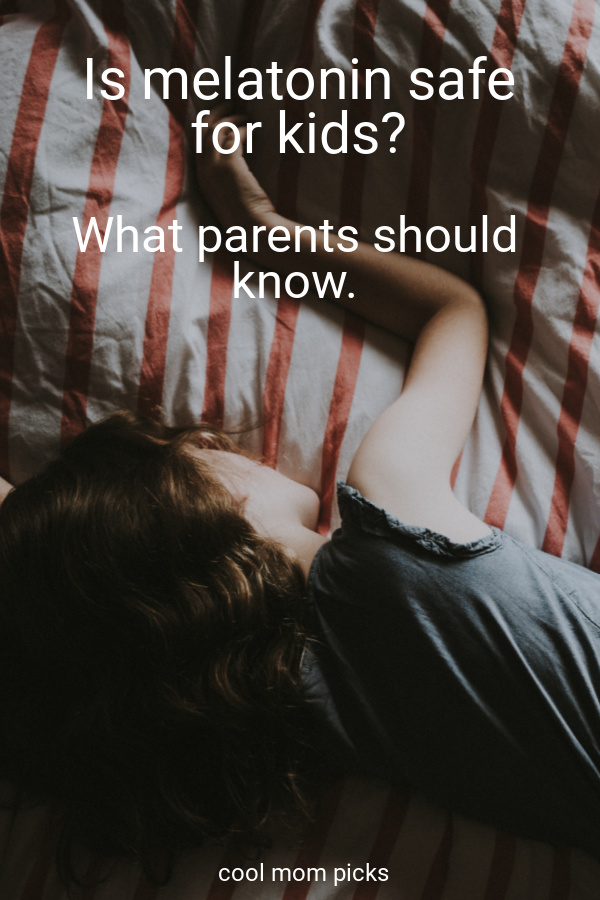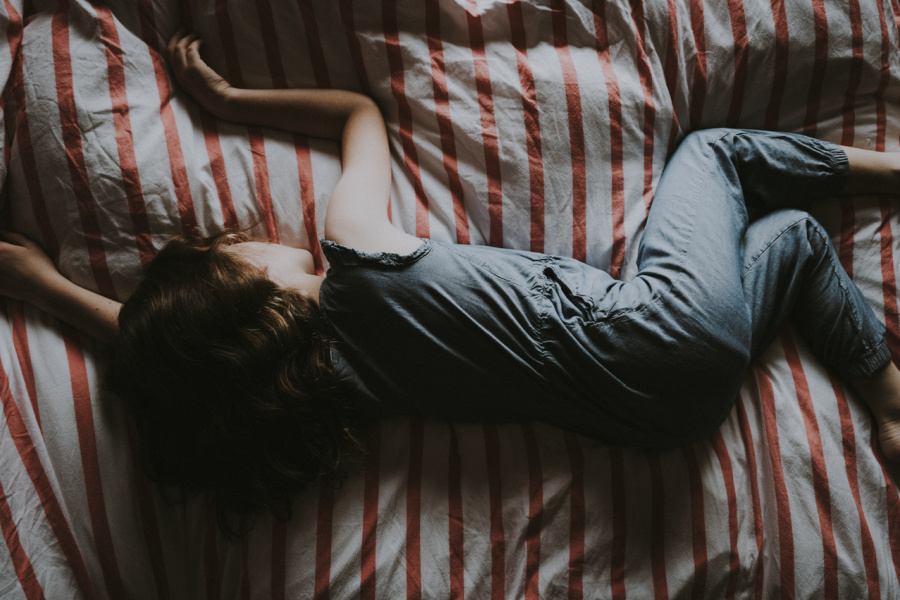Like so many other desperate — and exhausted — parents, we turned to melatonin supplements to help my son sleep when he was younger. I spoke to our pediatrician first of course, and did enough research about melatonin on my own to know that melatonin supplements simply add to your body’s natural supply of the hormone that helps a person fall asleep.
“Natural.” Sounds pretty safe, doesn’t it?
But news has recently emerged about the huge increase (+530%!) in melatonin overdoses in kids over the past 10 years (including a significant spike during the pandemic) and realized how easily melatonin can be misused or overused by exhausted parents and kids. Sometimes intentionally sometimes not. And during the pandemic, with the abrupt switch to virtual learning and an overall disruption of normal day-to-day schedules, it’s no surprise that melatonin sales rose almost 43% in 2020 over the previous year.
The entire planet was so stressed out, it makes perfect sense that lots of us needed help sleeping!

Considering how careful we parents are with so many things we give to our kids, why have melatonin overdoses risen so quickly? There are probably a few reasons:
- Melatonin is not considered a drug but is instead a supplement, so it’s not regulated by the FDA for the purity of ingredients or accuracy of dosage recommendations. One 2017 study conducted showed that the amount of melatonin within pills in a single jar can vary between 83% to as much as 478% over the amount on the label, with almost three-quarters of brands being off by at least 10%.
- It can be tricky to figure out the correct working dosage of melatonin for your child. Some parents may try to up the amount if a previous dose doesn’t work or seems to have decreased in effectiveness.
- Children’s versions of melatonin are often sold in colorful gummy forms and liquids, both in flavors that are tempting for kids.
- Melatonin is considered “natural” in that it’s a naturally occurring hormone in the body; that can give the impression that a Melatonin overdose is not something to consider, unlike say Benadryl or cold and flu medication.
All this said, it’s really important to know that the majority of melatonin overdoses result in just excessive sleepiness, or sometimes nausea, both of which eventually wear off. However there have been some children who had to be put on ventilators — and a couple who, tragically, died. The most severe cases involved kids under 5 whose bodies couldn’t handle the amount they had ingested.
None of this is to be alarmist! Just to help keep you informed.
So to be extra extra sure we prevent future overdoses of melatonin in children, I’ve put together 5 easy factors to consider before you use melatonin to help your child sleep.
Top photo by Annie Spratt on Unsplash
5 factors to consider before using melatonin to help your child sleep
This post contains affiliate links, which means we may receive a small commission from certain purchases to help support the work we do at no additional cost to you. Thanks for supporting independent publishers!
1. Explore alternatives to melatonin first
Since there are no long-term studies on the effects of melatonin on babies or children, it makes sense you exhaust all other avenues before you turn to melatonin as a sleep aid. Starting a bedtime routine with babies and toddlers helps build a strong foundation for our kids, so if you are a newer parent, read our article The science behind baby bedtime routines for tips.
For parents of older kids, our post Sleep anxiety in kids: 5 solutions for big kid sleep issues that really work outlines a few tried-and-true options we’ve used including essential oils, weighted blankets, and even recorded bedtime stories. Chances are, you may already do some of these, but there may be an idea or two that you haven’t explored yet.
And though it’s long been understood that we should be putting our screens down early in the evening to prepare our bodies for sleep (ahem, guilty), don’t discount the ability of tech to help with getting kids to sleep. Apps like Netflix Jr’s Bedtime Stories app and CMP favorite Calm app, which offers dedicated Sleep Stories just for little and big kids, can help our children of all ages wind down through gentle story telling. (And without you needing you to reread the same book for the 25th time!)
Related: Dr. Harvey Karp answers parents’ biggest sleep questions. Yes! | Spawned ep 68
2. Rework your evening routines
If you have teens, you know that a lot of eating happens after the dinner dishes have been put away — I wake up to new ones every morning from late-night noshes! And even younger tweens and kids may need a little something in their bellies to help them fall asleep.
We all know caffeine and too much sugar can screw up bedtime, but on the other hand, there are foods that can help make kids and adults sleepy, like warm milk or chamomile tea.
Also read up on these 5 snacks that might help you sleep better and 8 unexpected foods that may help you get a better night’s sleep.
Food aside, take look at what the kids are doing before bedtime. Watching exciting shows like Stranger Things or a big sports playoff may keep your kids buzzing long after they should be sleeping. Consider recording these shows to watch earlier in the day or as a special treat on nights when an earlier bedtime isn’t as critical.
If you have older kids, also take a look at 6 smart ways to use tech to help your teen get better sleep at night, which goes over ways that we can cut down on some of the impacts of phones and tablets — from blue light to late-night social media notifications — to make falling asleep easier.
3. Consult your pediatrician on proper melatonin dosing and usage
Definitely have a talk with your child’s doctor before you consider using melatonin for better sleep. Your pediatrician will want to first insure there is no other reason your child isn’t sleeping (which would render melatonin useless) and then, help you make the best choice for how to handle the problem.
If you do decide melatonin is a good choice, always read the label; especially if you are switching from one brand to another.
If your pediatrician agrees that melatonin might help, they can advise you on correct dosage and also things to look out for when administering this supplement to your child. They’ll let you know what you can safely increase your dosage to should the initial amount not do the trick.
Be sure to use a product specifically made for little bodies, like CMP favorite brand Zarbees’ Natural Children’s Sleep with Melatonin Gummies — though note that this is formulated for kids ages 3+ and at least 31 pounds. Every product will have its own dosing specs, so make sure you read the label carefully.
Remember there is no antidote to a melatonin overdose, so giving your child too little is better than too much.
4. Store melatonin as you would any other medication
Though not classified as a drug by the FDA, melatonin should be stored in a safe location away from kids’ hands, as with vitamins and other medications and supplements, whether your melatonin is in the form of pills, the colorful and fruity gummy version, or a syrupy-sweet liquid.
Check for safety caps on lids (Zarbees, mentioned above, does a good job of using them), since some melatonin, especially the pills packaged by vitamin and supplement brands, may not have locking lids on the top. ( But, even with a locking lid, store bottles of melatonin out of reach to keep from a determined preschooler.)
5. Be ready to give it up if it’s not working
Melatonin is not a magic pill — it often does not work as well as an exhausted parent might wish. For my family, it did help our child fall asleep but unfortunately, not stay asleep.
And as kids grow, you may find that it’s not working the same way anymore which is totally normal too.
Be ready to try another solution for sleeplessness, maybe even going back to ideas that didn’t work before but may work now; kids’ sleep schedules (and bodies) change so much as they get older, flexibility — as we parents know! — is key.
And, rest assured, you too may someday be the proud parent of a teenager who sleeps past lunchtime one day, making you wonder why you were so worried they’d never sleep in the first place.




